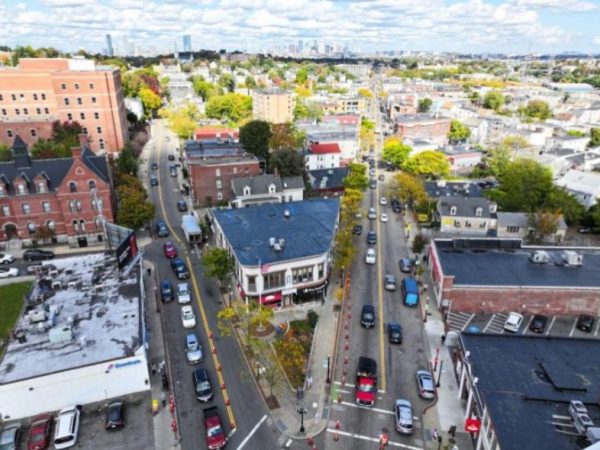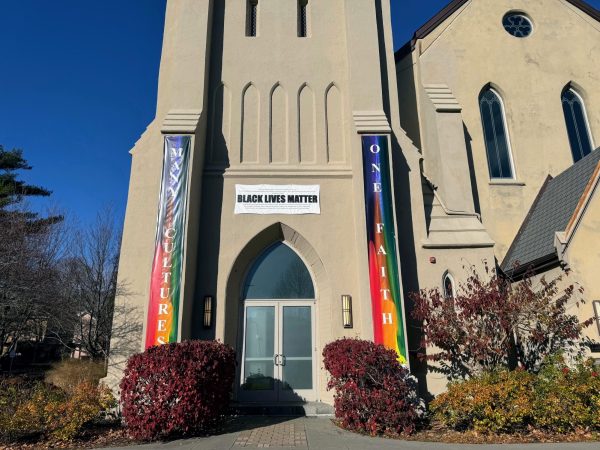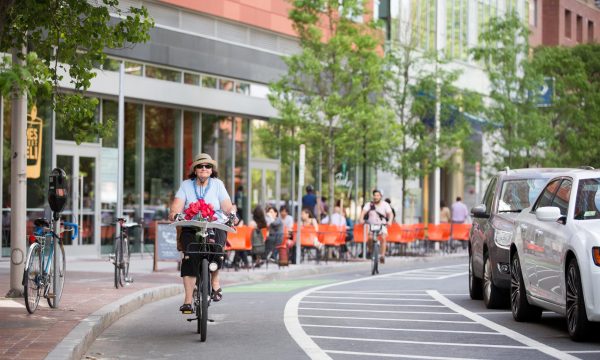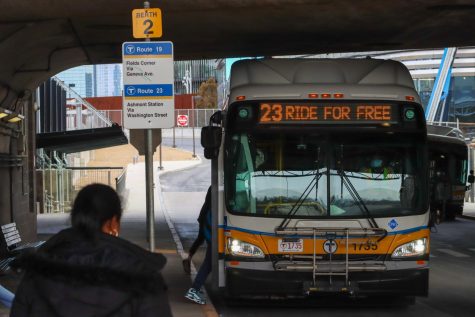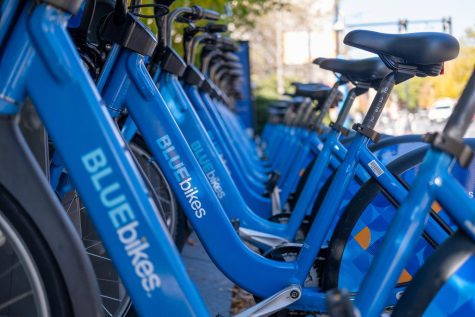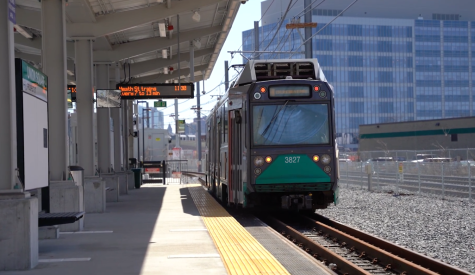Bike advocates share the benefits of cycling, push for safer conditions
Commuters around Boston have turned to cycling to reduce their carbon footprint. The low cost and sustainability that cycling offers makes it an alternative of transportation for some individuals.
“Cycling helps in so many ways,” said Robert Kaufmann, a Boston University professor. “First, it reduces the pollution associated with finding, extracting, refining and ultimately burning oil or motor gasoline.”
Organizations around Boston have even provided bicycles for Black and marginalized communities to ensure that they can get around the city and are not hindered by transportation costs.
“There’s a kind of an individual level of impact that we have where individual people kind of use the bike to get around to different community resources, to school, to work, to the pharmacy, to get groceries,” said Elijah Evans, executive director at Bikes Not Bombs.
The organization also has an option to help individuals find future employment. “Other people that we engage with, it’s kind of become an employment opportunity. The skills they learn in bike repair can help them get a job anywhere in the United States,” Evans added.
As more cyclists hit the road, the safety of those cyclists has become a common concern. Bike lanes are present in Boston, but cycling advocates believe city officials can take more steps to ensure that cyclists are protected. Every year, several cyclists are struck by cars.
However, some cyclists are willing to take that risk and encourage others to see the benefits that cycling offers. “I think you’ll become quickly addicted to how good it makes you feel, and everything we do has risk, and I think you’ll be willing to put up with the risk,” said Kaufmann.
This video is a part of a transit justice series produced in Jody Santos’ course “Video News Reporting and Producing” at Northeastern University. Over the course of the semester, students will be producing news packages addressing climate and transit justice within Greater Boston.









